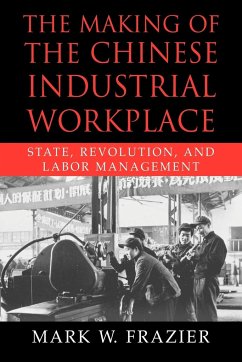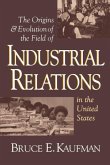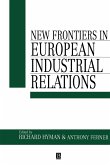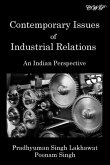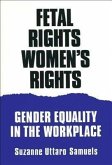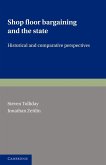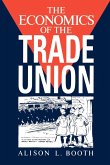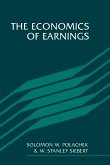This book sheds light on state and society relations in China under the Nationalist and Communist regimes.
State workers in China have until recently enjoyed the 'iron rice bowl' of comprehensive cradle-to-grave benefits and lifetime employment. This central institution in Chinese politics emerged over the course of various crises that swept through China's industrial sector prior to and after revolution in 1949. Frazier explores critical phases in the expansion of the Chinese state during the middle third of the twentieth century to reveal how different labour institutions reflected state power. While the 'iron rice bowl' is usually seen as an outgrowth of Communist labour policy, Frazier's account shows that is has longer historical roots. As a product of the Chinese state, the iron rice bowl's dismantling in the 1990s has raised sensitive issues about the way in which the contemporary Chinese state exerts control over urban industrial society. This book sheds light on state and society relations in China under the Nationalist and Communist regimes.
Review quote:
"Reveals new perspectives.... This book will be essential reading for scholars interested in modern Chinese economic history, as well as those interested in the structure of Chinese society under communism and the historical antecedents to the current era of economic reform."
Journal of Asian Studies
"This well-written and intensively researched study is certainly the best monograph to date on the evolution of an institution, which though now receding before the relentless tides of market economics, embodied a synchronized mixture of state control of the workplace and extensive welfare provisions for factory employees.... Frazier's book is essential reading for anyone interested in the historical emergence of modern Chinese industrialization."
Choice
"This fascinating study does an invaluable service of traversing the divide between China before and after the revolution and recognizing the subnational diversity of Chinese institutions."
America Journal of Sociology
"It is an importent book for those seeking to understand China's history as well as for anyone interested in understanding the nature of China's current efforts to reform the country's industrial structure...this is also an important work for anyone interested in understanding the emergence of soacial structure and the role that culture plays in the process."
Contemporary Sociology
"This is an extremely useful study, which charts the evolution of workplace industrial relations from the 1920s to the early 1960s and provides an accessible, comprehensive, thorough, and reliable account of those relations."
Business History Review
"Frazier's The Making of the Chinese Industrial Workplace will make important contributions to the scholarship of...the Chinese danwei...Frazier's analysis will force those who analyze Chinese firm-level institutions, a somewhat smaller field of researchers, to fundamentally reconsider many of their assumptions of the Chinese work unit's origins."
Perspectives on Politics
Table of contents:
List of tables; List of acronyms; Preface; 1. Introduction; 2. Labor management and its opponents, 1927-1937; 3. Welfare and wages in wartime; 4. Takeover policies and labor politics, 1949-1952; 5. Adjusting to the command economy; 6. Enterprise perspectives on the command economy; 7. The rise of 'party committee factories'; 8. Conclusion; Archives consulted; Bibliography; Index.
State workers in China have until recently enjoyed the 'iron rice bowl' of comprehensive cradle-to-grave benefits and lifetime employment. This central institution in Chinese politics emerged over the course of various crises that swept through China's industrial sector prior to and after revolution in 1949. Frazier explores critical phases in the expansion of the Chinese state during the middle third of the twentieth century to reveal how different labour institutions reflected state power. While the 'iron rice bowl' is usually seen as an outgrowth of Communist labour policy, Frazier's account shows that is has longer historical roots. As a product of the Chinese state, the iron rice bowl's dismantling in the 1990s has raised sensitive issues about the way in which the contemporary Chinese state exerts control over urban industrial society. This book sheds light on state and society relations in China under the Nationalist and Communist regimes.
Review quote:
"Reveals new perspectives.... This book will be essential reading for scholars interested in modern Chinese economic history, as well as those interested in the structure of Chinese society under communism and the historical antecedents to the current era of economic reform."
Journal of Asian Studies
"This well-written and intensively researched study is certainly the best monograph to date on the evolution of an institution, which though now receding before the relentless tides of market economics, embodied a synchronized mixture of state control of the workplace and extensive welfare provisions for factory employees.... Frazier's book is essential reading for anyone interested in the historical emergence of modern Chinese industrialization."
Choice
"This fascinating study does an invaluable service of traversing the divide between China before and after the revolution and recognizing the subnational diversity of Chinese institutions."
America Journal of Sociology
"It is an importent book for those seeking to understand China's history as well as for anyone interested in understanding the nature of China's current efforts to reform the country's industrial structure...this is also an important work for anyone interested in understanding the emergence of soacial structure and the role that culture plays in the process."
Contemporary Sociology
"This is an extremely useful study, which charts the evolution of workplace industrial relations from the 1920s to the early 1960s and provides an accessible, comprehensive, thorough, and reliable account of those relations."
Business History Review
"Frazier's The Making of the Chinese Industrial Workplace will make important contributions to the scholarship of...the Chinese danwei...Frazier's analysis will force those who analyze Chinese firm-level institutions, a somewhat smaller field of researchers, to fundamentally reconsider many of their assumptions of the Chinese work unit's origins."
Perspectives on Politics
Table of contents:
List of tables; List of acronyms; Preface; 1. Introduction; 2. Labor management and its opponents, 1927-1937; 3. Welfare and wages in wartime; 4. Takeover policies and labor politics, 1949-1952; 5. Adjusting to the command economy; 6. Enterprise perspectives on the command economy; 7. The rise of 'party committee factories'; 8. Conclusion; Archives consulted; Bibliography; Index.

